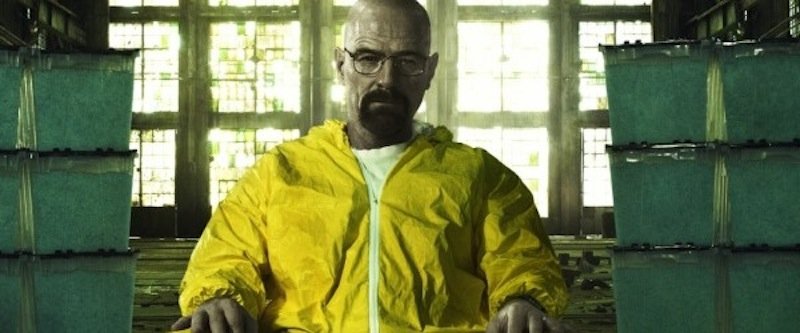They say of Jim Brown —
When he got to the end zone he acted like he’d been there before.
They don’t say this of those who make it there today.
There’s something to be said for this, and Vince Lombardi said it —
If you aren’t fired with enthusiasm, you will be fired with enthusiasm.
So to the extent the ante-extra point, anti-Jim Brown antics are about staying pumped, No blood, no foul. But to the extent it’s evidence of postponed adulthood … no.
For it was Lombardi’s own Jerry Kramer who hit a block to seal the Packers’ win in the 1967 NFL Championship game, and then, simply … got up, and walked off the field.
He did what he was supposed to do.
you see, and that was enough. It was enough, as well, for M’s grandfather, who returned from World War II, got a job as a pattern cutter for a New Jersey clothing manufacturer, and then, simply … worked every day at it.
And as one final note of contrast, here is Coach Carter on tying one’s shoes.
*
Which brings me to Walter White.
Any pain the main man of Breaking Bad feels flows directly from whether or not he gets his due. And I say feels because it is not entirely real — but really simply his perception of whether or not he got it. In the most recent episode, the second to last one ever, until the inevitable calls for a Breaking Bad movie, the climax came when his former partner, and co-founder of the biotech company he … abandoned? … denied Walt had anything of substance to do with the partnering and founding at all.
Of course he was doing damage control because Walt is now exposed as a meth dealer — bad PR for the firm — but that hardly matters.
And it hardly matters whether it’s true or not. Nobody believes Walt anymore, so why should he get to complain when others lie?
Because the truth is, he got what’s coming to him.
Perhaps we’re expecting him to die in a hail of bullets, or maybe just get torn in half by some Federale’s shotgun blast, but personally I expect him to live a long and lonely life far after the conclusion of this bit of his story. And that, in another and deeper sense, is what’s coming to him.
He has his reward.
Or, to put it another way, Walt can truly say —
I built that.
He built the broken home he now has. His, too, the broken building that no longer houses that home, where the only thing he has left is the name he swore all would know (and now they do) and the vial of poison he plans to use in the last episode.
He’s got everything from a thimbleful of biological warfare (a dose the size of a few grains of table salt can kill a human) to a much larger and more menacing (but far less lethal) semi-automatic weapon. His legacy will be death.
He helped mix the cement on thousands of drug addicts’ graves, and directly built the headstones on 10-20 of his own design, including his better man brother-in-law Hank. His son’s right — he did kill Hank. Though of course Walt blames others — in this case, Jesse.
This is what he built.
I think he’ll live past the end of the show. Soon we’ll know. But it’s no matter, because he’s dead already. And ultimately what he’s built is his own grave, in the shape of a bald and bad-ass Walter Hartwell White.
Or let us say Heisenberg, to we who know his name.
